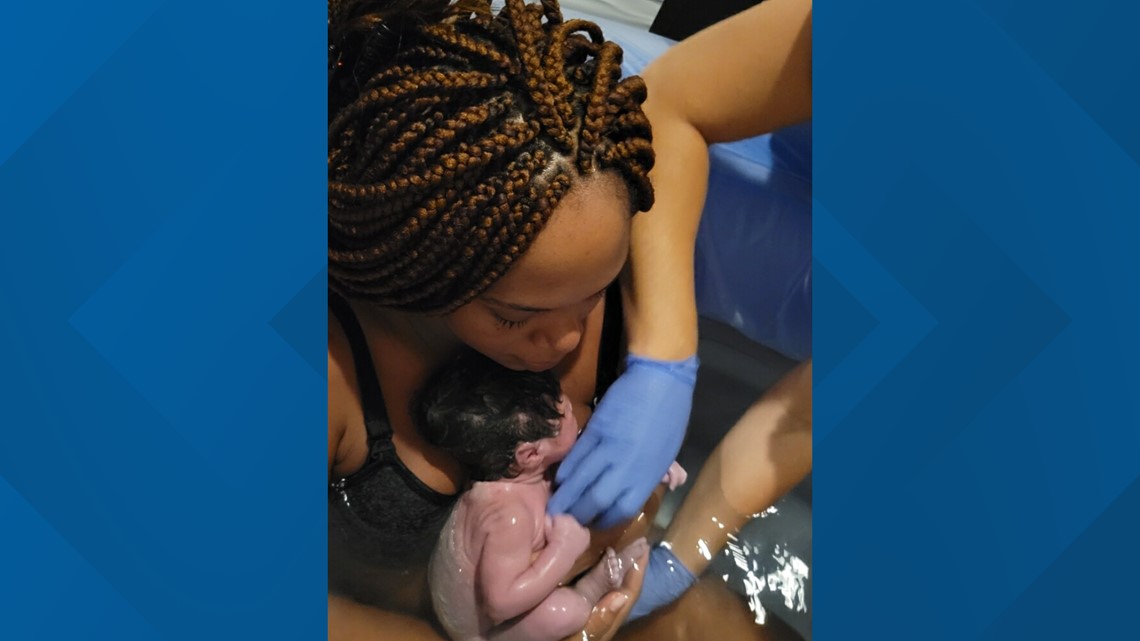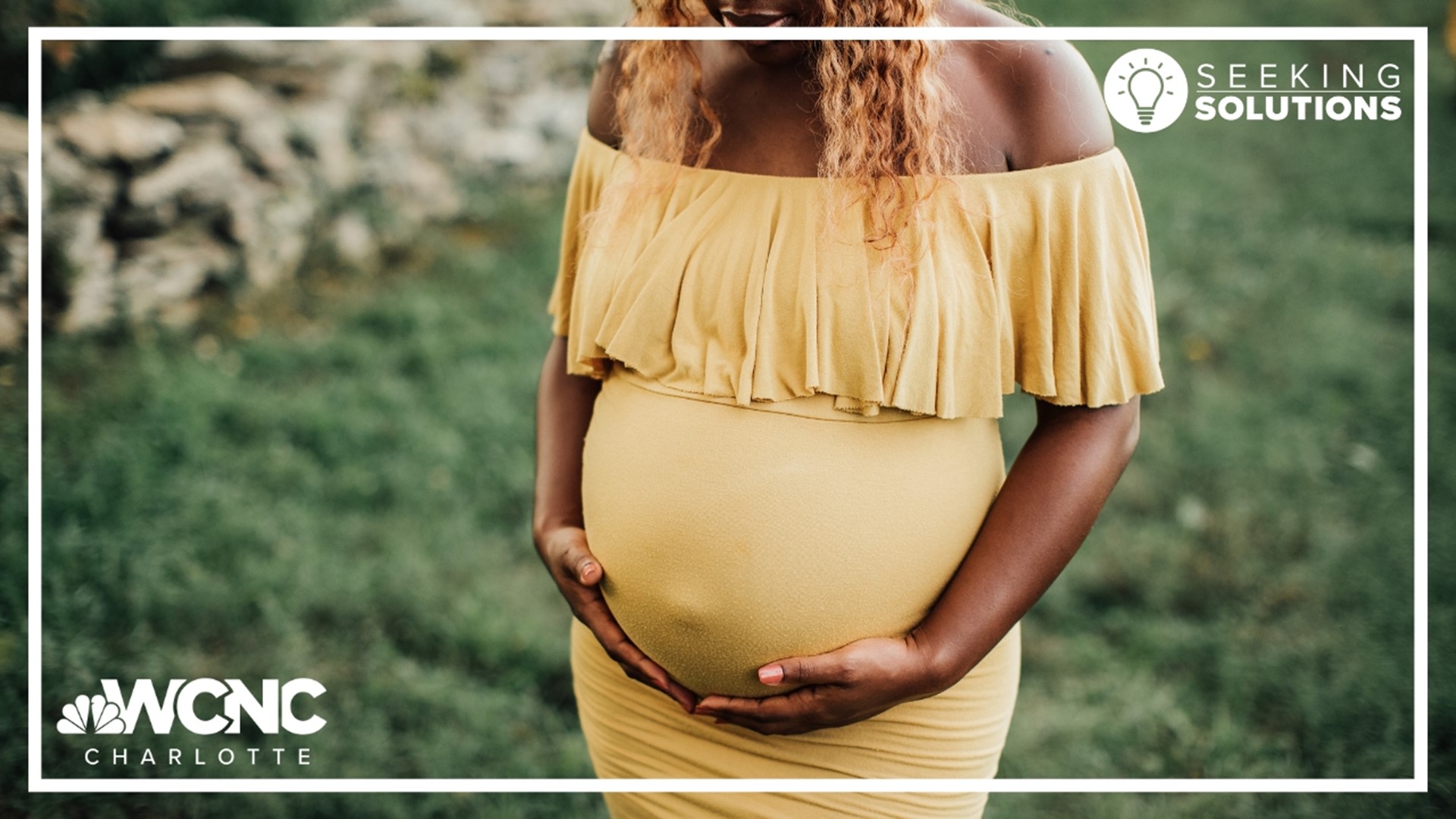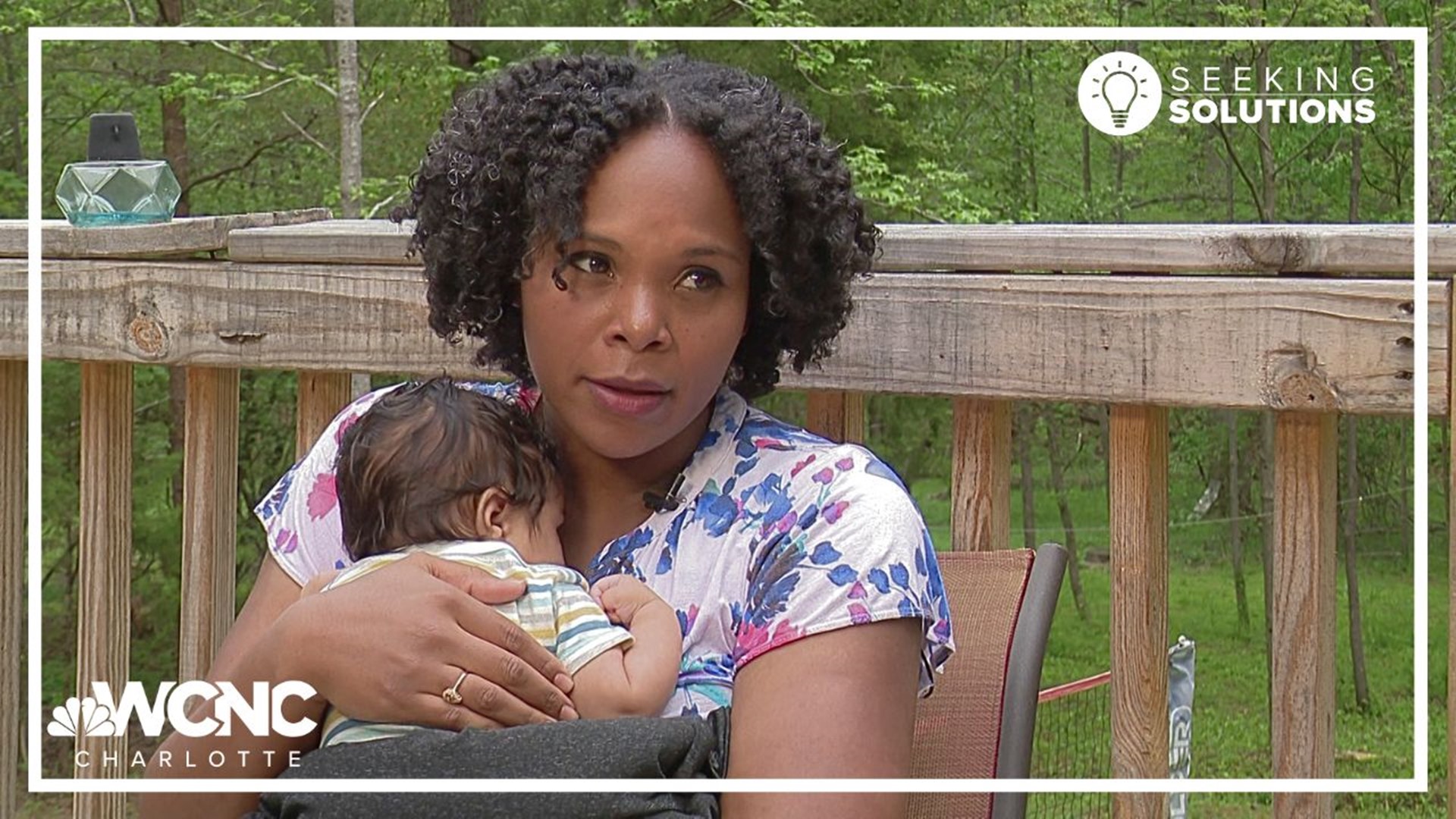NORTH CAROLINA, USA — Giving birth should be a beautiful experience but the sad reality is women continue to die during childbirth in the U.S. Women are dying before, during and after childbirth at higher rates than in other developed countries.
On top of that, Black women are three times more likely to die from pregnancy-related complications compared to white women. According to the Centers for Disease Control, more than 80% of these deaths are preventable.
During Black Maternal Health Week, WCNC Charlotte’s Jesse Pierre spoke to women who want to see these outcomes improved.
Jasmine Popat, a proud mom of two, is one of those women looking for improvements in Black maternal health.
Popat said these stats are partly why she enlisted the help of doulas and midwives so she could have the support she needed for a safe delivery and to make it home with her babies.
“Now that I have my own, it is pretty special to me,” Popat said. “It’s amazing to look at them to see something that I’ve made.”
She had her babies the way she wanted -- at a birth center with a team behind her.
“I did not have fears of not being listened to,” Popat said. “Not only did I have a doula, but I had midwives that listened to me. I had midwives that respected the way that I wanted to give birth and the way I wanted to go through my pregnancy.”
Popat had a waterbirth with midwives and her doula, Kira Kimble of MINE-R-T Doula Company. She said she was encouraged to try different positions and do what felt good and comfortable for her body. She notes it helped not to be stuck on a bed. Even when her baby boy got stuck during delivery, her team quickly took actions that Popat agreed with.


“My doula and midwives were able to team up and get him out safely and I just don’t know what that would have looked like in a hospital setting,” Popat said. “Could have ended up in C-section?”
Going to a birth center instead of a hospital for Popat was necessary. It’s a decision she made based on distrust and past experiences with doctors. When Popat was in her early 20s, she started to experience tremors and pain. She went to one doctor after another looking for answers. However, what she got was something completely unexpected.
“I will never forget this. I said 'Aren’t you going to run any tests?'” Popat explained. "[The doctor] said 'No I will not run any tests. You should be happy because that means you are fine.'”
However, that was not the case, and she was back in the hospital. Popat said she did not feel like she was heard and her pain was overlooked.
“We ended up finding lesions in my brain that had been there for years, and if he had done some basic test we could have started working towards finding that disease,” Popat said. She was diagnosed with multiple sclerosis.
Sacred Beginnings Doula Iman Boykin said the voices of Black women are silenced way too often.
“When you go into these birthing systems, these hospitals systems without education, a lot of times you can be forced to make decisions that you’re not aware of, or that you are not comfortable with,” Boykin explained.
Boykin said educating herself and standing firm on the vision she had for her pregnancy helped her have healthy deliveries. The mother, who has been a doula for about 10 years, said she has always been passionate about childbirth. She uplifts the voices of moms so they can have the pregnancy they envision.
“I recognize the need for support, the need for empowerment, the need for advocacy,” Boykin said. “The need for knowledge.”
Implicit bias, structural racism and access to quality healthcare are all factors that can play a role in the disparity Black women face.
Boykin said it's important for women to feel safe to use their voice, to ask questions and to speak up when something does not feel right.
“Lean on to your intuition, heart, and soul. What is your intuition telling you to do right now, because nobody knows your body better than you,” Boykin said.
It’s the type of support Popat said led to her having positive birthing experiences.
“I wanted someone to be there for me,” Popat said. “If something went wrong, I had someone there to stand up for me, to advocate for me and it helped to have someone who looked like me.”
Both women said they are encouraged by the conversations surrounding improving Black maternal health and want to see more work done to reduce the disparities Black women face.
Contact Jesse Pierre at jpierrepet@wcnc.com or follow her on Facebook, X and Instagram.
WCNC Charlotte is committed to reporting on the many issues facing the communities we serve. We tell the stories of people working to solve persistent social problems. We examine how problems can be solved or addressed to improve the quality of life and make a positive difference. WCNC Charlotte is seeking solutions for you. Send your tips or questions to newstips@wcnc.com.


